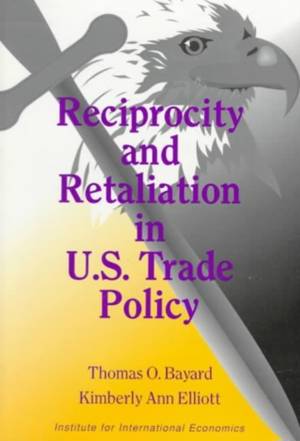
Je cadeautjes zeker op tijd in huis hebben voor de feestdagen? Kom langs in onze winkels en vind het perfecte geschenk!
- Afhalen na 1 uur in een winkel met voorraad
- Gratis thuislevering in België vanaf € 30
- Ruim aanbod met 7 miljoen producten
Je cadeautjes zeker op tijd in huis hebben voor de feestdagen? Kom langs in onze winkels en vind het perfecte geschenk!
- Afhalen na 1 uur in een winkel met voorraad
- Gratis thuislevering in België vanaf € 30
- Ruim aanbod met 7 miljoen producten
Zoeken
€ 42,45
+ 84 punten
Omschrijving
Should the United States use retaliatory threats to open foreign markets or deter unfair trading practices? This study reexamines the arguments for and against reciprocity and retaliatory threats in light of actual experience since early 1975, especially the United States' aggressive use of the section 301, special 301, and super 301 provisions of US trade law, which gives the president broad authority to retaliate against "unjustifiable, unreasonable, or discriminatory" foreign trade practices. It analyzes the advantages and disadvantages of these policies and the circumstances under which they are likely to succeed or fail.
Specificaties
Betrokkenen
- Auteur(s):
- Uitgeverij:
Inhoud
- Aantal bladzijden:
- 503
- Taal:
- Engels
- Reeks:
Eigenschappen
- Productcode (EAN):
- 9780881320848
- Verschijningsdatum:
- 1/09/1994
- Uitvoering:
- Paperback
- Formaat:
- Trade paperback (VS)
- Afmetingen:
- 154 mm x 229 mm
- Gewicht:
- 734 g

Alleen bij Standaard Boekhandel
+ 84 punten op je klantenkaart van Standaard Boekhandel
Beoordelingen
We publiceren alleen reviews die voldoen aan de voorwaarden voor reviews. Bekijk onze voorwaarden voor reviews.









